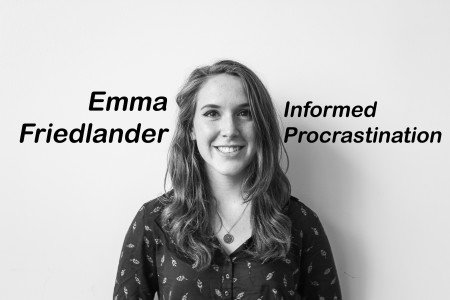Emma Friedlander
friedlan@grinnell.edu
We get really excited when our favorite stars get their own TV shows. Think of Mindy Kaling’s “The Mindy Project,” Zooey Deschanel’s “New Girl” or Andy Samberg’s “Brooklyn Nine Nine.” Sure, all of these shows have a great supporting cast and team of writers, nevertheless, much of their hype comes from their already much-loved stars. When we watch “New Girl,” we see Zooey Deschanel as herself more than as any character, because she has already so firmly established herself within pop culture (and tormented us with hair ribbons and folksy warbling). These new projects don’t always successfully break actors from their typecasts.
Aziz Ansari’s new series, “Master of None,” appears to very intentionally separate the famed comedian from his most notable characters. Ansari is renowned for many roles, standup specials and his book “Modern Romance.” He’s best known for playing Tom Haverford, a cocky and swagger-obsessed government administrator on “Parks and Recreation.” Like most breathing, functioning human beings, I absolutely adore “Parks and Recreation.” When I found out Ansari was coming out with his own show, I was really excited to see more from the comedian, but also curious about whether the program would prove a successful departure from his Tom Haverford identity, or merely reinforce his limitations as a breakout character. So, to find out, naturally I binge-watched all 10 episodes in a 48-hour period.
“Master of None” is a Netflix original comedy that premiered on Nov. 6, 2015. It was created by Ansari and his friend Alan Yang, and stars Ansari as Dev Shah, a 30-something actor in New York City. Right, right, haven’t we seen this a million times before? Young adults struggling with careers, friends and relationships in the big city—that’s certainly not the most original of premises. However, Ansari’s take is uniquely refreshing. For one, he acknowledges and emphasizes his identity as an Indian-American without giving in to any stereotyping. In fact, the fourth episode of the series, called “Indians on TV,” deals with Dev and his fellow Indian-American actors’ struggle against typecasting in the American media. Dev has a diverse friend group, dates a diverse array of women and deals with a diverse series of daily struggles just like any real human being would. By acknowledging but not stereotyping Dev’s Indian-American identity, “Master of None” makes great strides in progressing television diversity. Many viewers and critics have pointed to Ansari and Kaling as equally significant pioneers in South Asians’ media representation.
The show is perhaps best characterized by its both realistic and refreshing approach to real world situations. Each episode focuses on a familiar human concept: disconnect from parents, feminism in contemporary America, maintaining long-term relationships. These depictions can be so true to life that they sometimes verge on boring. The most quintessential example is the many episodes dedicated to the budding relationship between Dev and his girlfriend Rachel, depicted by Noël Wells. Their relationship is pretty typical. They have witty repartee and petty fights and while they certainly like each other, it’s no Hollywoodized fireworks-blazing romance. It’s refreshing to see a cute but realistic relationship on television. On the other hand, if I wanted to watch somewhat funny but mostly boring and unproductive banter for an entire half hour I could just talk to myself in a mirror.
For example, in the episode entitled “Nashville,” Dev and Rachel take an impromptu trip to, you guessed it, Nashville. That sounds like a compelling storyline, right? This episode is probably the most boring of the entire series. Sure, there are cool cityscapes to look at and Johnny Cash tunes to listen to, but nothing actually happens. There are mini conflicts, like when Dev takes vegetarian Rachel to a barbecue restaurant or makes her miss her flight home. It seems like there will be some sort of tension, something to push the story development, but the characters quickly kiss and make up and nothing comes to fruition. Maybe this is true to life, but it doesn’t make for very compelling television.
That being said, my favorite part of the series is the very end of the final episode. Here, Dev and Rachel’s relationship finally takes an interesting direction. Without giving too much away, at first the viewer is led to believe that the season finale will follow a typical, boy-chases-his-dream-girl plot. Instead, the show chooses to emphasize the characters’ autonomy, and the importance of priorities besides romantic love. This final scene sealed the deal for me—maybe “Master of None” isn’t the most exciting television, but it has certainly revolutionized television’s approach to real world situations in the most relatable and uplifting of ways.
My consensus: Dev Shah is nowhere near as laugh-out-loud funny as Tom Haverford or even Aziz Ansari’s own stand-up persona. The acting isn’t always great, and many of the jokes and character dynamics seem forced. Despite all that, “Master of None” is still cute and charming and a feel-good show. Most importantly, it left me thinking about my own life. I thought about Dev’s relationships with his parents, friends and significant others, and how they pretty accurately reflected my own. It made me evaluate myself as a person. And if that’s not the mark of procrastination-worthy TV, I’m not sure what is.




















































